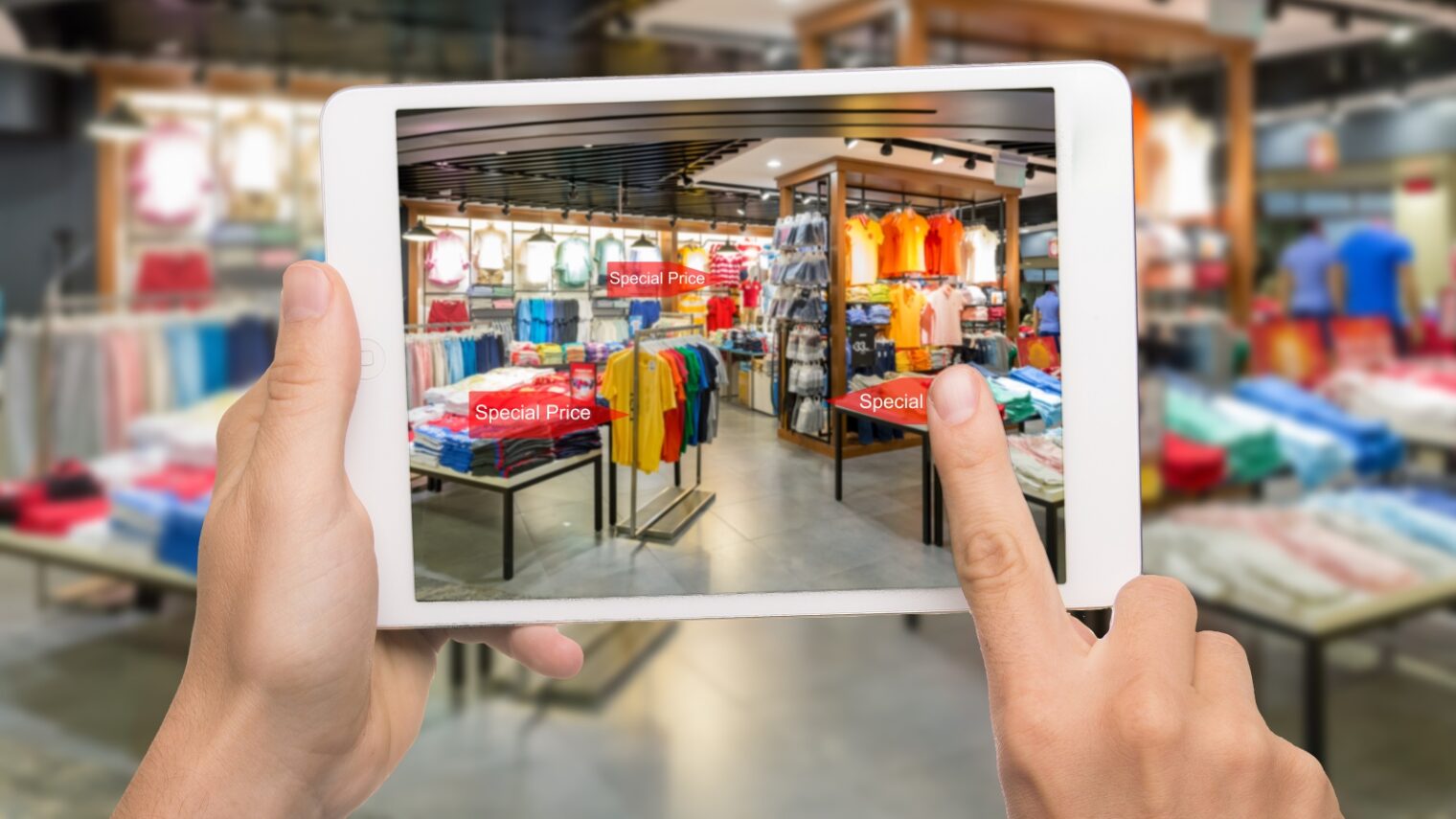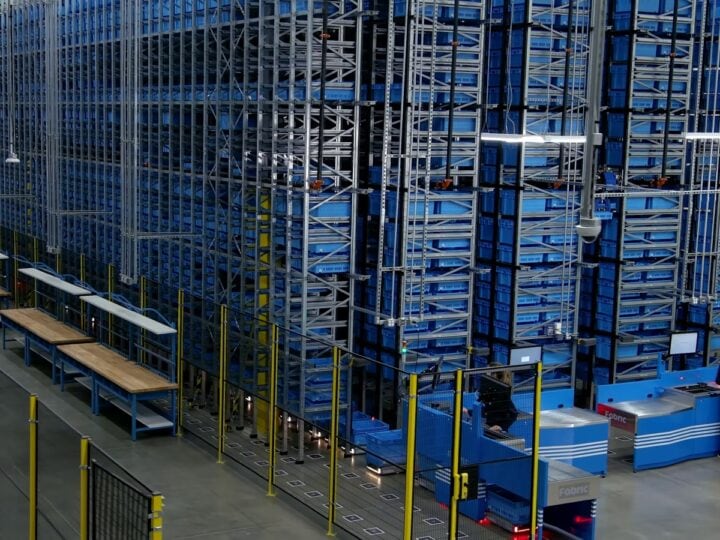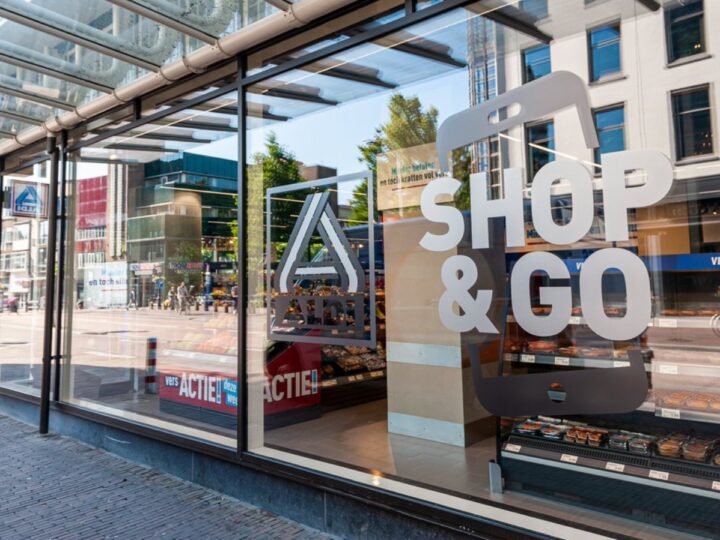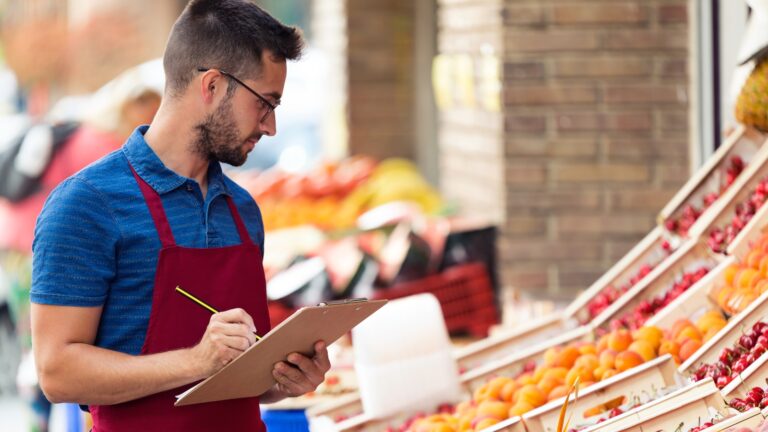Avid skateboarders like Roy Tertman wear out their shoes every few weeks. To save time shopping, Tertman would order a bunch of pairs online and return those that didn’t fit. He discovered that 35% percent of all shoes purchased online are returned, causing a big pain point for retailers.
“That’s how the idea came to put the foot in the shoe virtually by creating a 3D model from the customer’s smartphone photo,” says Tertman, an Israeli serial entrepreneur.
His Tel Aviv startup, Fitfully, aims to mimic the instore try-on experience, using fancy algorithmic footwork to pinpoint an individual shopper’s size for each type of shoe.
A strategic partnership with Adidas has given Fitfully valuable data and feedback to prepare its white-label shoe-shopping app for launch in 2019. Funding has also come from European and Asian angel investors.
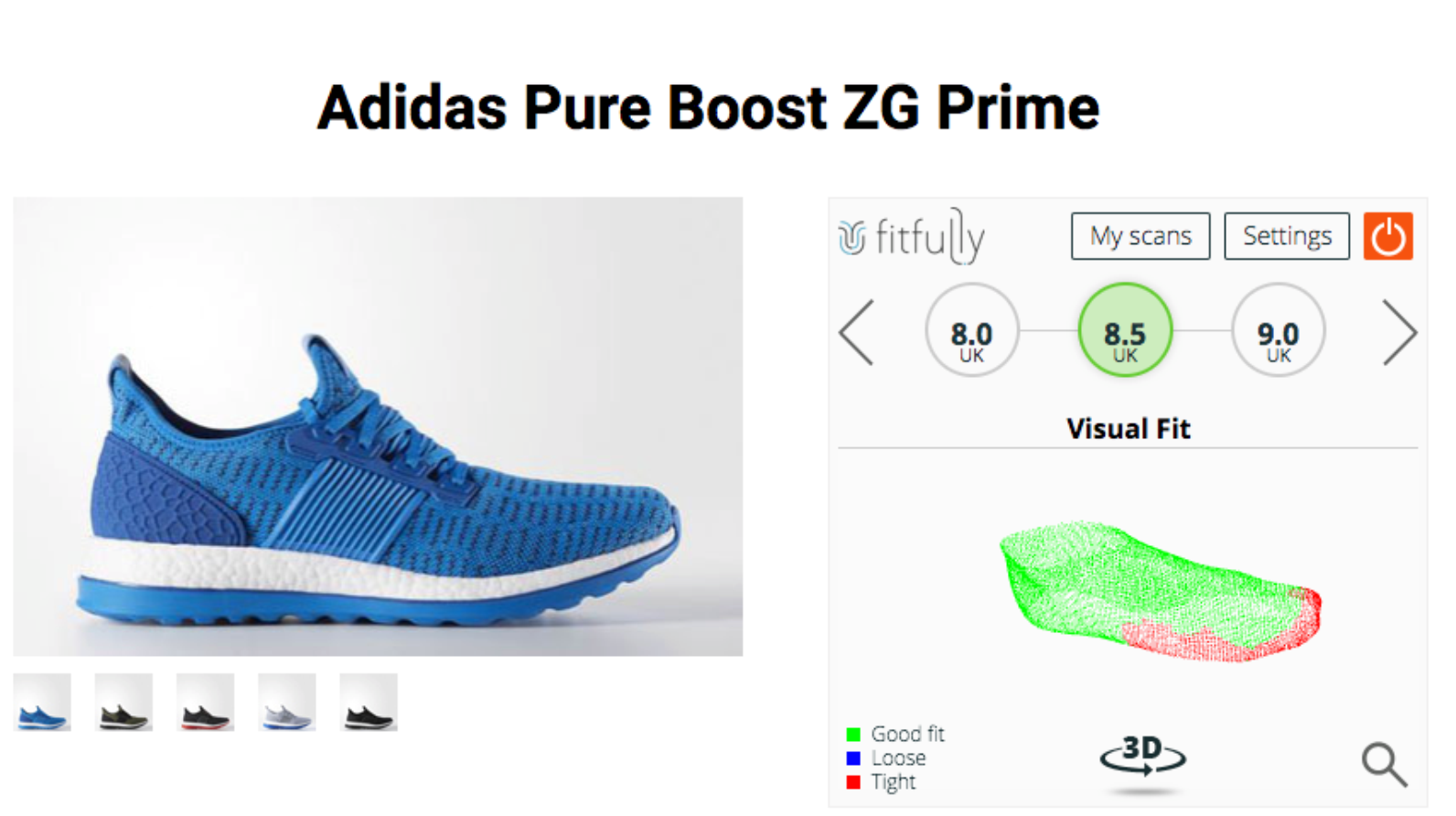
Last April, Adidas rival Nike acquired Israeli computer-vision firm Invertex in the hope that its anatomical 3D scanning system will improve customer experience and lower return rates.
These are only two on a long list of megabrands coming to shop in Israel’s fast-growing retail-tech sector. In the last 24 months, six of the top 10 retailers in the world have either acquired, invested in, partnered with or scouted out Israeli startups, says Ilan Leiferman.
“In the $25 trillion retail industry, Israel is becoming the No. 1 hub for very deep technologies applied to retail,” says Leiferman, managing partner of The Shelf in Tel Aviv, a business that helps clients find, finance and partner with retail innovators in Israel.
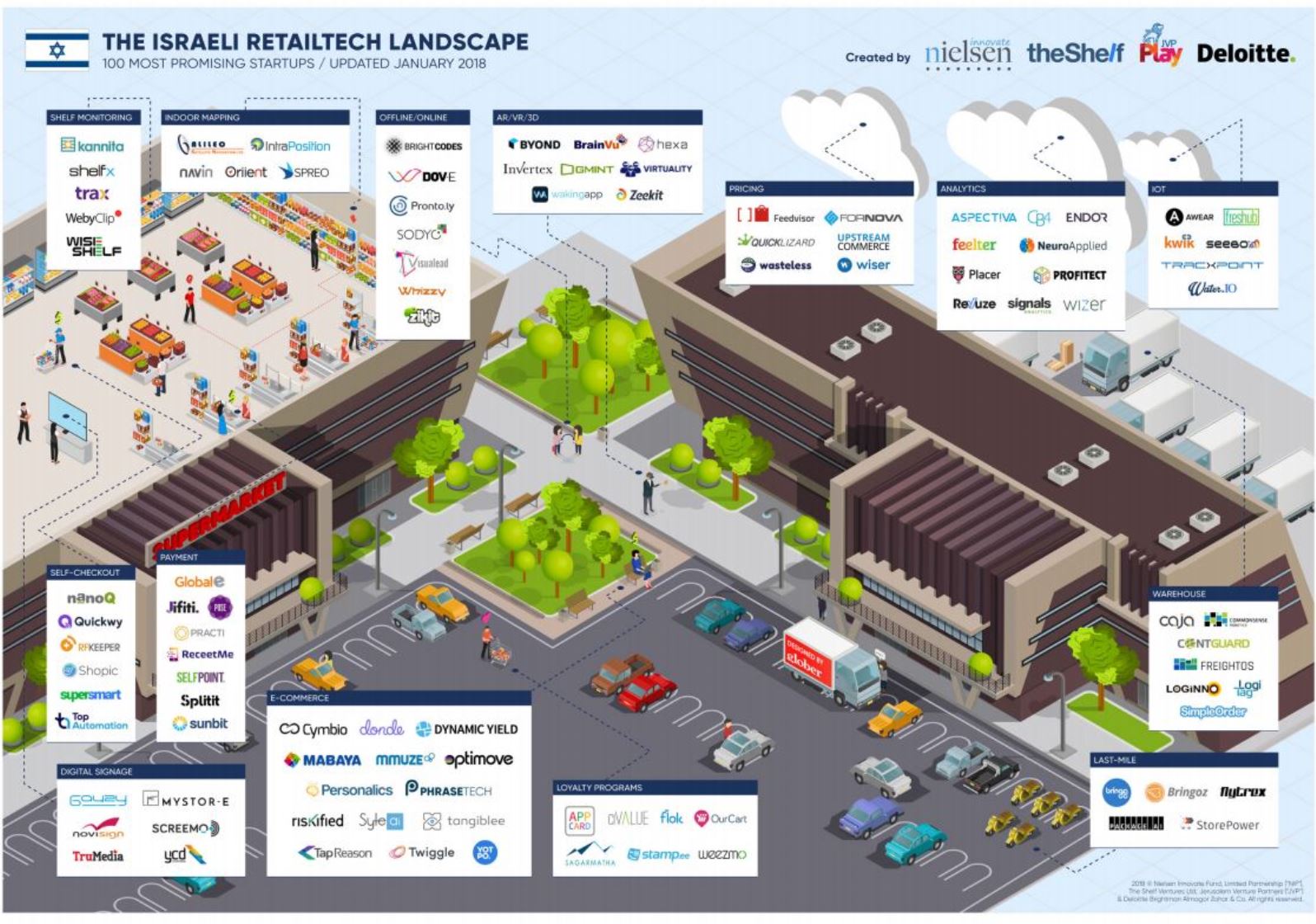
Heavy-hitters including Amazon, Walmart, Best Buy, Tesco, Carrefour and Alibaba are finding plenty to put in their shopping carts.
“In our network we have over 250 startups and I guess there at least 100 more at various stages. We’ve nearly doubled since last year and new startups are joining every week,” says Yael Kochman, cofounder with Alla Foht of Re:Tech Innovation Hub (re-tech.io/) of Tel Aviv, recently named one of Retail Week’s “5 Best Retail Tech Hubs in the World” (the others are in Lisbon, Berlin, Singapore and Amsterdam).
The total number of Israeli firms working in some aspect of retail-tech is put at 419 by Startup Nation Central. Two of them were acquired last month alone: Upstream Commerce by India’s Flipkart and Tapingo by the US-based Grubhub.
On October 28-29, Re:Tech’s Retail Disrupt conference will bring together startups with retailers from several countries seeking innovation for anything from instore and online customer experience and stock management to fraud prevention and marketing.
Hidden pearls
“Israel is very strong in machine learning and artificial intelligence. These have a lot of implications for retail so that is why companies are looking here,” Kochman tells ISRAEL21c.
“Retailers are always searching for the next best thing, the pearls their competitors haven’t discovered yet.”
Kochman says many corporations see an advantage in working with Silicon Wadi’s emerging retail-tech ecosystem. “Retailers can define their goals and challenges and direct Israeli startups to refine the product to meet their needs, as the use cases haven’t been completely defined by the startups.”
Many deals between retailers and Israeli startups originate in big-brand innovation centers in Israel or in the retailer’s home country. Re:Tech helped ASOS open an innovation lab here, and helped Farfetch recruit Israeli companies to join its new accelerator in London.
A lot of the collaborations are still hush-hush. Here are five that are public knowledge, all involving Tel Aviv-based retail-tech startups:
- ASOS, Amazon and Italian e-tailer Yoox all work with Zeekit, whose advanced AR/VR/AI technologies provide personalized fitting and style recommendations online and offline.
- Eko (formerly Interlude) is creating a video and content platform for Walmart.
- Advanced delivery logistics innovator Bringg is doing business with firms including Coca-Cola, Kimberly Clark, Panera Bread, Salesforce and Cdiscount.
- Tommy Hilfiger’s new Tommy Jeans Xplore collection features a sewn-in smart tag invented by Awear Solutions, providing two years of post-sale intelligence about when and where the jeans are worn. Based on usage, customers are rewarded with points redeemable for personalized prizes.
- Syte.ai, whose visual-search technologies range from a visual search camera button to an interactive mirror that speaks with the customer, counts among its clients the London retailers Marks & Spencer, Boohoo and Intu as well as Etam (Paris).
Leiferman says his clients include some of the biggest retailers in fashion, groceries, consumer electronics and traditional retailing, mainly in Europe.
The Shelf’s “Rethinking Commerce” closed conference last June introduced 15 retailers — 60% of them international – to a curated group of 20 Israeli retail-tech startups. Several deals are in progress.
“We started The Shelf about three years ago and since then we’ve seen a massive increase in interest and awareness of the ecosystem. Probably 2019 will be the tipping point of retail-tech here,” he predicts.




